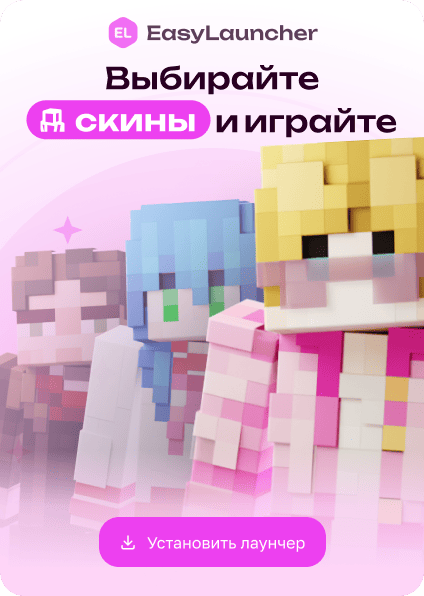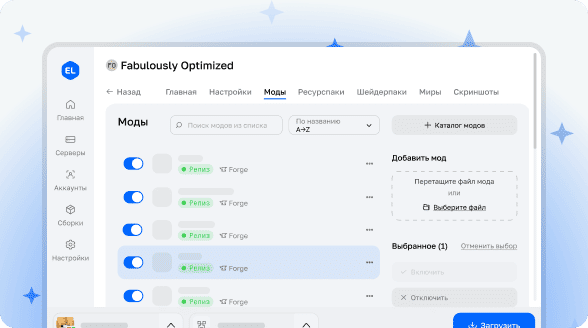

TIS-3D: Low-Tech Computing for Minecraft
The TIS-3D mod draws inspiration from the brilliant game TIS-100 (we recommend purchasing it). It brings the concept of minimalist programmable nodes, called "modules" in the mod, into three-dimensional space. This allows creating multi-block computers from various modules with incredible flexibility.
Among the most useful modules are the execution module, which can be programmed in an assembly dialect (similar to TIS-100 but with additional convenient instructions), and the redstone module, providing reading and transmission of signals for basic interaction with the game world.
More specialized modules include the stack module for data storage, the infrared module for wireless data transmission between TIS-3D computers, and the terminal module for simple text input-output. And this is far from a complete list of capabilities.
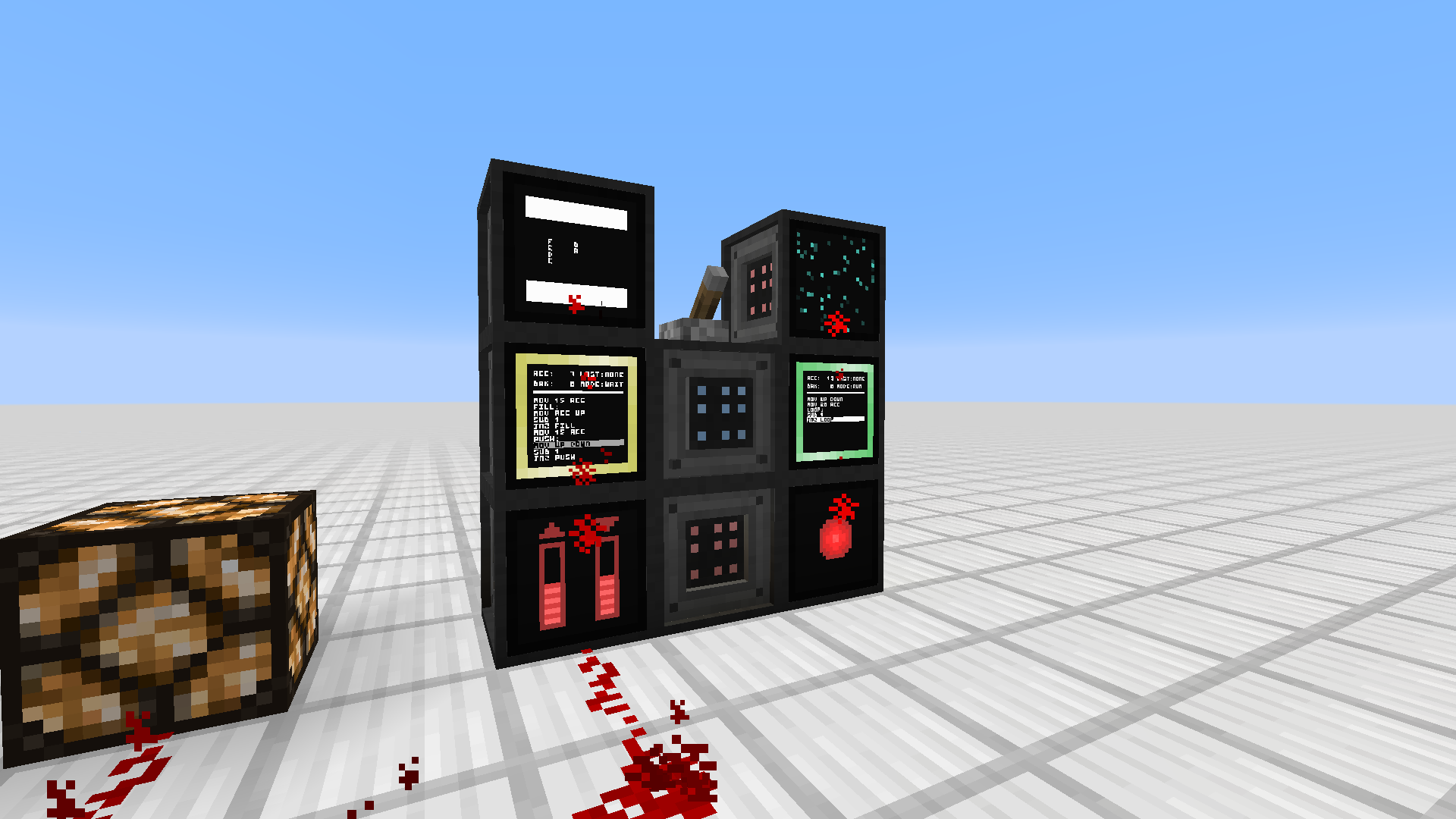
Getting Started
To begin, craft a controller and several casings. For viewing recipes, we strongly recommend installing JEI. To obtain the in-game manual, use a book on a placed controller (right-click the block with a regular book in hand). You'll find all necessary information in the manual.
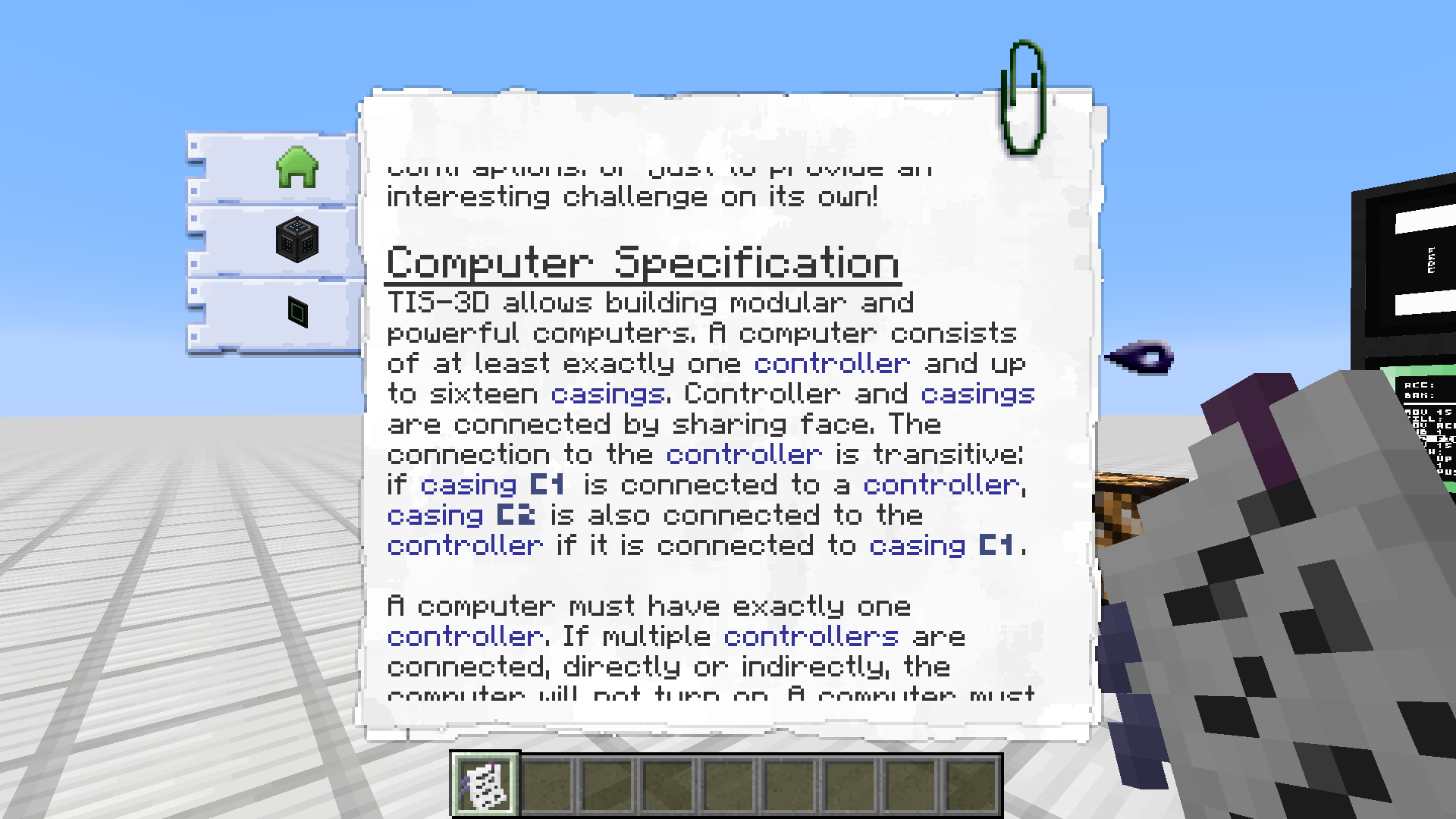
Programming TIS-3D Computers
To program a TIS-3D computer, you can use a regular Book & Quill or the special Codex Bible. To install a program on an execution module, simply use the book on the installed module (right-click with the book in hand). When using a Book & Quill, all content is treated as one long program where all pages are combined. With the Codex Bible, each page is considered a separate program, and the program from the currently selected page is installed on the module. You can also copy programs back to the Codex Bible by using it on an execution module while sneaking.
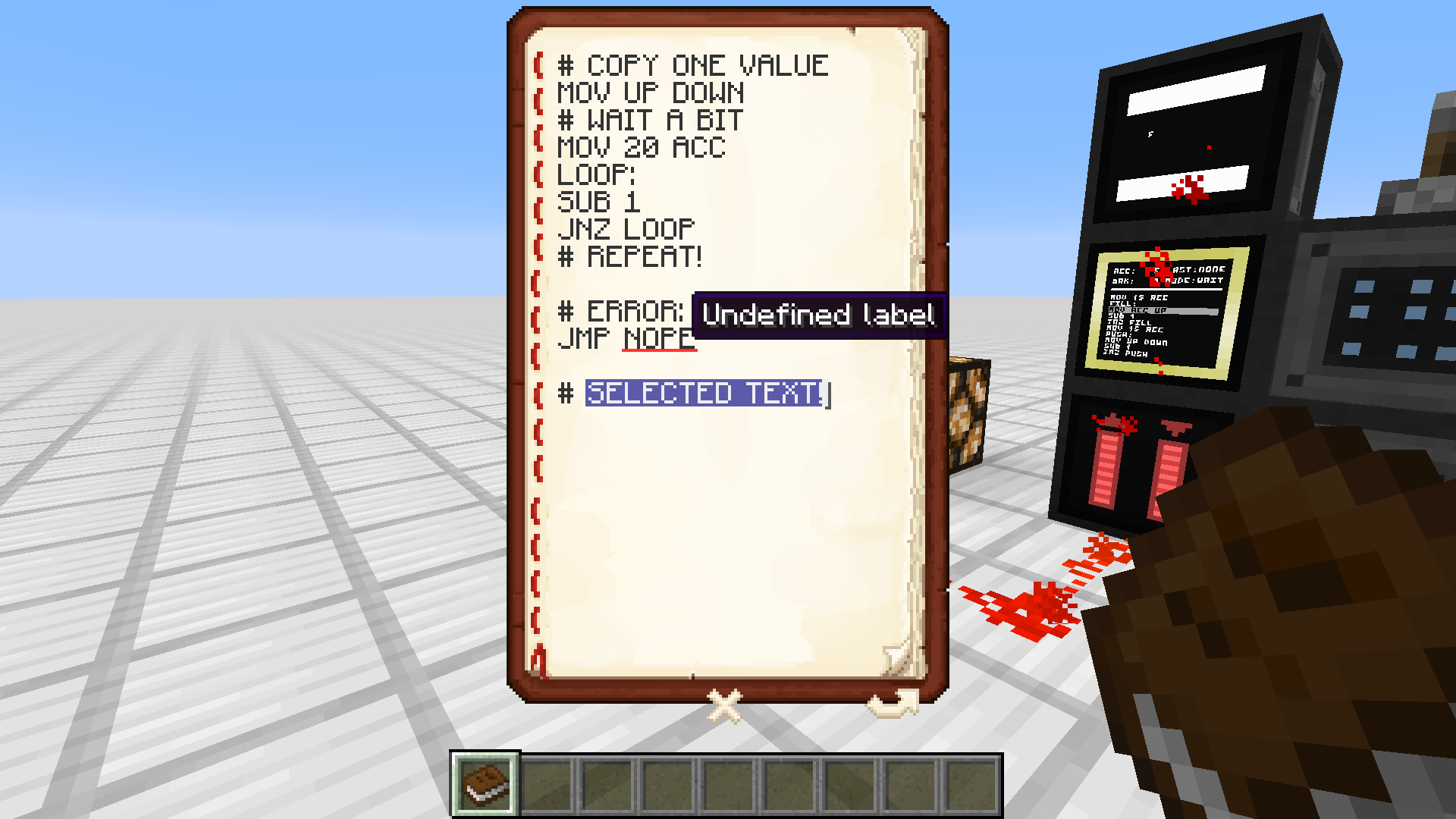
What's Next?
What can you do with this mod? Just have fun! Use it to automate processes that typically require complex redstone circuits. Create a music machine. Develop a machine code interpreter and run even more complex programs (stored in ROM modules). Let your imagination run wild!
If you don't like reading, here's a short video explaining the basics. It was recorded during early development, but the core concepts remain relevant.
